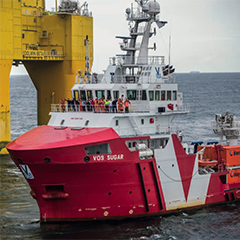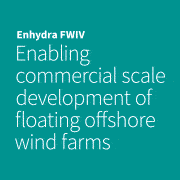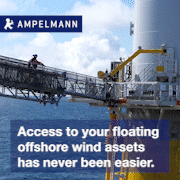If a leopard could not change its spots, it would have long been extinct had it been masquerading as a vessel owner in the offshore industry!
‘It is not the strongest of the species that survives, nor the most intelligent that survives. It is the one that is the most adaptable to change.’
—Charles Darwin
An inability to adapt to changing surroundings has repeatedly been the downfall of those incapable of moving forward. You only need to look at companies such as Kodak and Blockbuster to see what can happen if you are unable or too slow to embrace change.
Bringing things closer to home, shipping in general and offshore specifically has been hard hit over the past few years by a sustained oil-price crash, compounded by the current global COVID-19 pandemic. These events have shone a critical light on not just the way we do business, but on life as we know it – and this is not said lightly. The devastation from the pandemic has already left its mark on hundreds of thousands of individuals and families, whilst the economic fallout from the current crisis will be deep, far-reaching and undoubtedly leave many casualties in its wake.
Change is definitely on the way, whether we like it or not!
The offshore Oil & Gas market is well established, with tried and tested systems, procedures and infrastructure that have been in place for decades. A mature industry with an experienced and well-oiled supply chain; one that has seen its fair share of good times and bad, but also one bloated with inefficiencies. At Vroon, we have witnessed this first hand, having been active in the industry for more than 50 years.
Take a typical cargo run in the North Sea. A vessel that cost millions of Dollars to build and has high running costs, crewed by highly skilled individuals, is instructed to proceed at best possible speed to a rig or platform. In order to achieve the ETA, the crew sails as instructed, with all engines on line. The vessel arrives, only to be told by the rig to wait on standby until the offshore team is ready. All the while, this vessel is consuming more fuel and costing more money.
This is just one example, but it is certainly not isolated. Ask any crew member sailing on a platform-supply vessel. The purpose of this is not to point fingers, simply to highlight that efficiencies can be easily achieved and these can benefit all stakeholders.




























